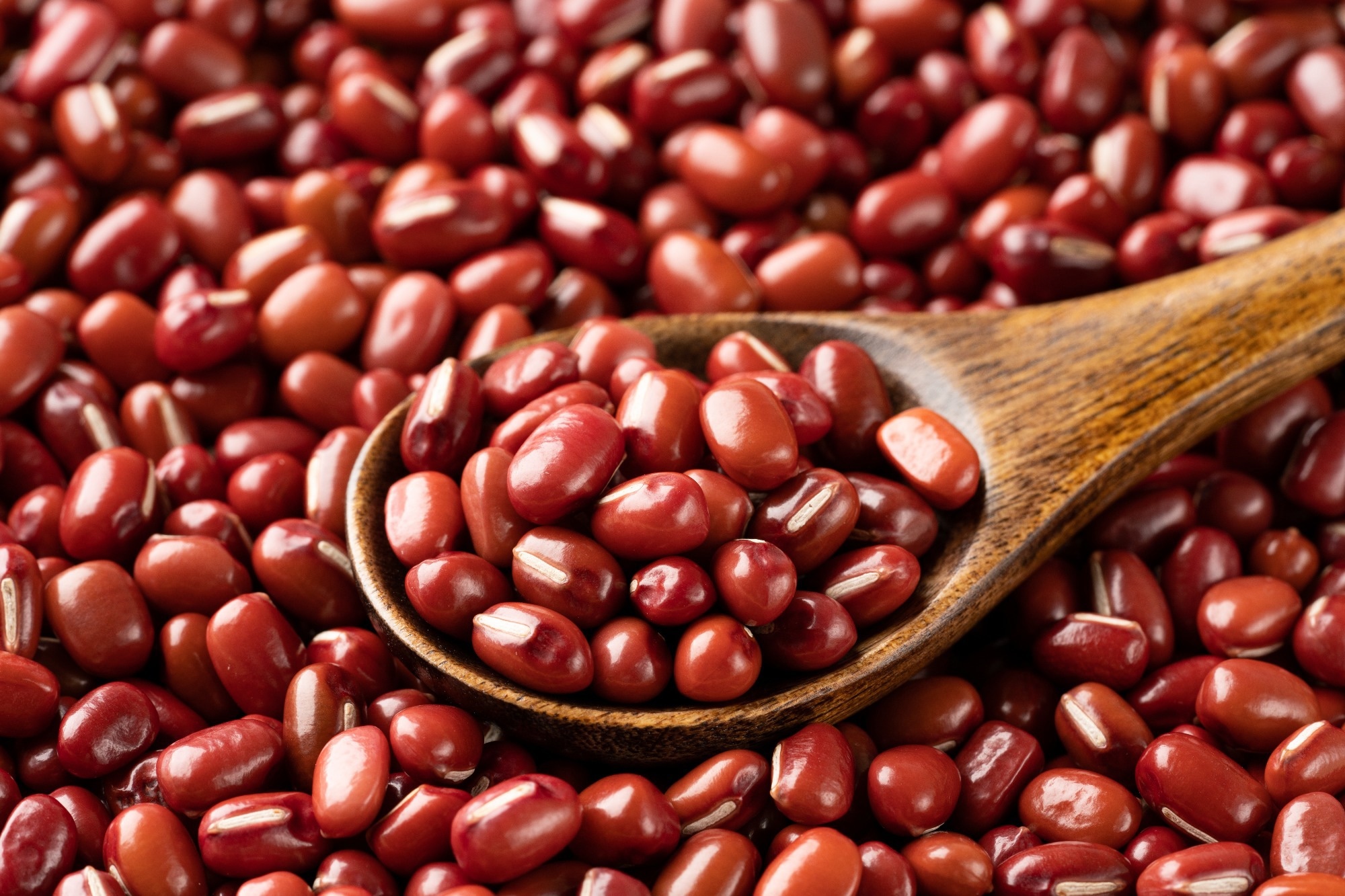In a narrative review published recently in the Nutrients Journal, researchers reviewed evidence supporting adzuki bean (Vigna angularis) supplementation to prevent and manage type 2 diabetes (T2D).
 Study: The Potential of the Adzuki Bean (Vigna angularis) and Its Bioactive Compounds in Managing Type 2 Diabetes and Glucose Metabolism: A Narrative Review. Image Credit: Hanasaki/Shutterstock.com
Study: The Potential of the Adzuki Bean (Vigna angularis) and Its Bioactive Compounds in Managing Type 2 Diabetes and Glucose Metabolism: A Narrative Review. Image Credit: Hanasaki/Shutterstock.com
Background
There are several research gaps in the current literature evaluating the effects of adzuki bean consumption on preventing and managing T2D in humans.
Most evidence of its usefulness in T2D comes from animal studies, and these studies have not yet identified the underlying mechanisms by which adzuki bean impacts T2D-related outcomes.
Moreover, the rodent studies exclusively used male animals; consequently, the anti-diabetic effects of adzuki bean supplementation in females remain unclear.
Furthermore, research has not identified the chemical and biochemical characteristics of functional (bioactive) compounds in adzuki beans.
Overall, evidence favoring the use of adzuki bean supplementation to prevent T2D and manage its obesity and dyslipidemia-related outcomes is inconclusive.
Introduction
The adzuki bean (Vigna angularis) is a legume with a low glycemic index (=26); thus, it may be a beneficial addition to diabetic diets.
Some notable bioactive compounds in adzuki beans are kaempferol, catechins, anthocyanins, saponins, and phytic acid; additionally, protein/peptides, polyphenols, and polysaccharides in adzuki beans are important to consider.
China is the largest producer of Adzuki beans in Asia, even though it is consumed as a whole, sweetened paste, in soup, etc., in several other Asian countries, including Japan. They are used in commercially available food products, too.
However, it requires scientific investigation to determine at what dosage its consumption may provide anti-diabetic health benefits, and its bioactive compounds and mechanisms of action contribute to the prevention and management of T2D.
Study methodology
For the present narrative review, researchers extensively searched the Scopus and PubMed databases to identify human, animal, and cell culture studies in English that described using adzuki beans to manage T2D based on assessing two key diabetes risk factors: obesity and dyslipidemia.
Adzuki bean's role in diabetes management
So far, thirteen animal and two in vitro studies have investigated the health benefits of the adzuki bean in people with diabetes, and only one study explored its effects in human subjects.
In diabetic mice with hyperglycemia, a T2D-related outcome, consuming adzuki bean flour improved glucose tolerance, blood glucose levels, and insulin sensitivity.
In male KK-Ay mice with T2D, adzuki bean hot water extracts containing polyphenols lowered blood glucose levels, as reported by Itoh et al.
Compared to controls receiving 500 mg of cellulose/kg of body weight (BW)/day, diabetic mice receiving a higher dose of adzuki bean hot water extract (500mg) showed significantly lower blood glucose at weeks two, three, five, and six, i.e., more antidiabetic effects.
These effects were attributable to polyphenols in adzuki beans. Likewise, adzuki bean polysaccharides improved glucose homeostasis and pancreatic islet cell recovery in rodents in a dose-dependent manner.
Furthermore, animal studies explored the effects of food processing effects on the content of the bioactive compounds in adzuki beans, including steaming, extrusion-cooking, and germination.
They found that while steaming lowered the ability of adzuki bean flour to manage T2D outcomes, extrusion-cooked beans had better anti-diabetic benefits than raw adzuki beans.
Raw adzuki bean has higher total phenolic and flavonoid content, while cooked extruded adzuki beans have higher polysaccharide and protein content and higher α-glucosidase inhibitory activity, gradually facilitating glucose release into the bloodstream.
Processing adzuki beans via germination also increased their anti-diabetic polyphenol content.
Furthermore, the researchers compared the effects of adzuki bean to sulfonylurea and metformin, oral medications used in managing T2D.
A 500 mg hot water extract from adzuki beans/kg BW of mice had better antidiabetic benefits than sulfonylurea in healthy and diabetic subjects.
In comparison, there was no marked difference in the hepatic glycogen content in diabetic rats that received adzuki bean polysaccharides (400 mg/kg BW/day) or metformin.
Adzuki bean polysaccharides modulated T2D-related outcomes via activation of the PI3K/AKT signaling pathways that regulate the glucose metabolism and insulin responses, thus benefitting pancreatic and liver function.
The human study also showed that recipients of extruded adzuki beans had similar improvement in T2D indicators as those on a conventional low glycemic index diet for T2D management.
Likewise, different compounds derived from adzuki beans showed diverse effects on serum lipid levels.
It varied based on the type of adzuki bean compound used, the dosage and duration of supplementation, and the methods employed in processing them.
Conclusion
To summarize, there is enough evidence that adzuki bean supplementation has an equivalent or better impact on T2D outcomes than T2D medications and adherence to low-glycemic-index diets.
However, more research is needed to examine the effects of adzuki bean supplementation on T2D-related outcomes in human subjects, especially the following:
- impact of food processing on the anti-diabetic potential of adzuki bean bioactive compounds;
- ii) how adzuki bean modulates serum lipid levels;
- iii) its antioxidative benefits; and iv) its role in modulating the gut microbiota.